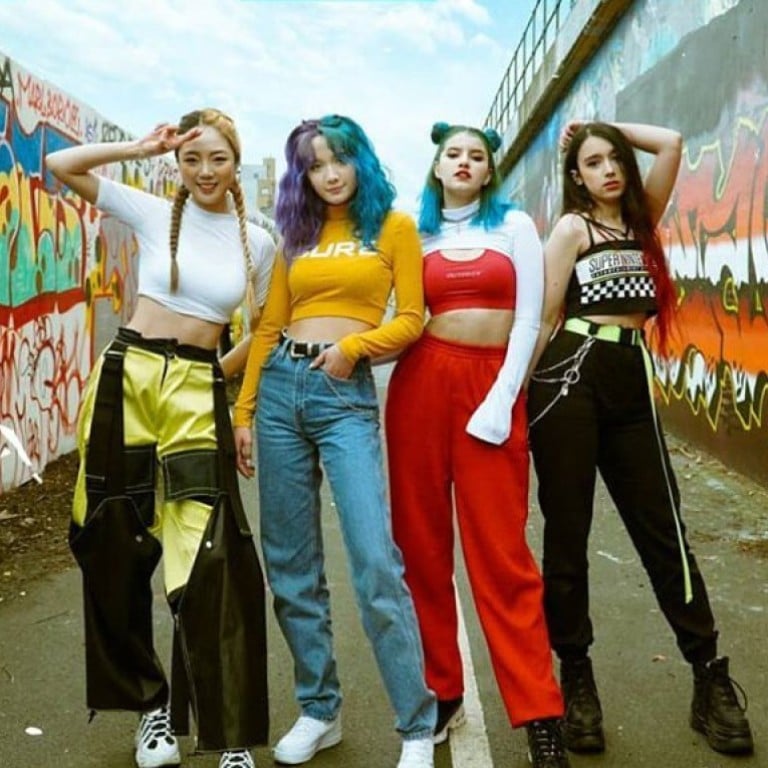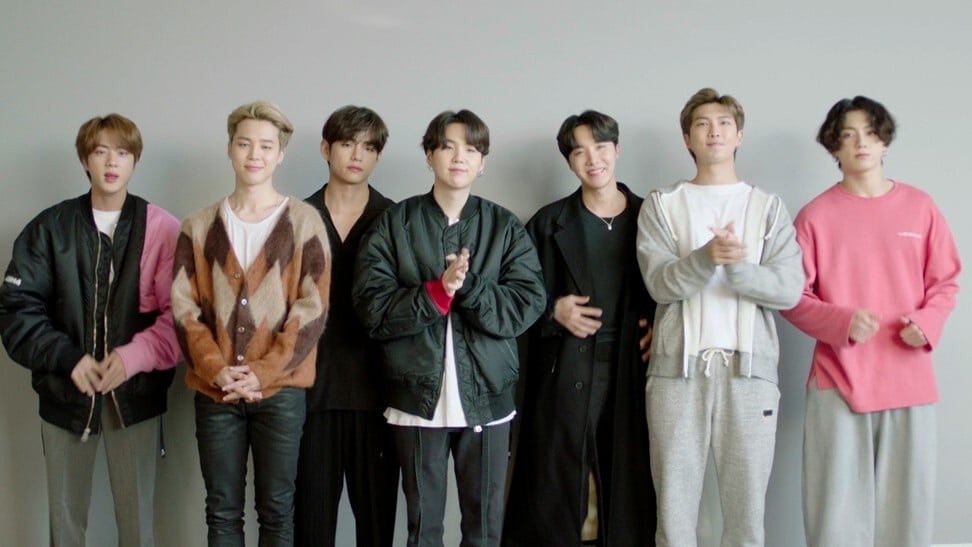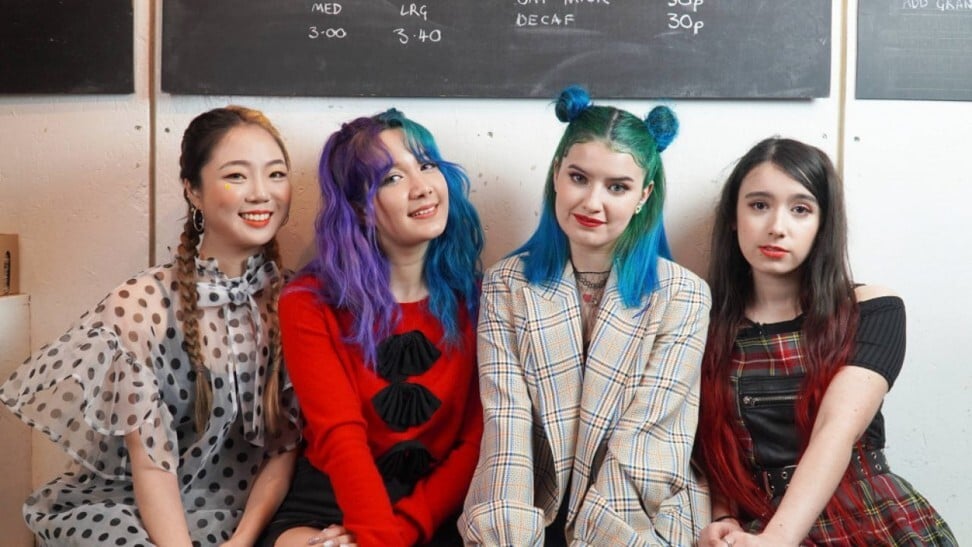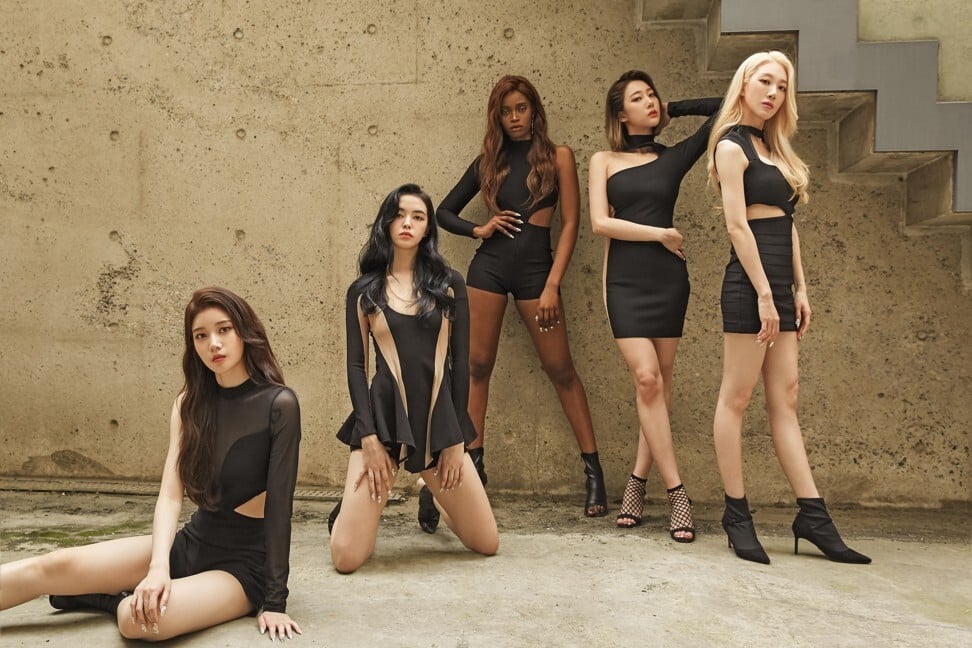
What is K-pop now? As BTS and Blackpink become global stars, and non-Korean groups enter the industry, we ask what it means to be a K-pop act
- ‘K-pop’ has typically been used to refer to South Korean pop music by young idols managed by major entertainment labels, but that is changing
- Bands like London-based Kaachi, with only one Korean member, have been criticised by many K-pop fans for entering a cultural space they don’t belong in
Just what is K-pop exactly? As South Korean pop artists receive increased global recognition, and more non-Korean artists get in the game, the idea of “K-pop” is becoming harder to define.
“K-pop” as a term has been popularised by English-language media over the past few decades and is typically used as a catch-all term to refer to not just South Korean pop music, but more specifically that created by young, multitalented pop idols who are managed by major entertainment labels and engage intensely with their fandom audiences.
“When defining K-pop, one should consider the music, visual images and people who participate in the scene together,” said Gyu-tag Lee, assistant professor of cultural studies (anthropology) at George Mason University Korea, who researches K-pop and the surrounding South Korean entertainment industry.
According to Lee, “K-pop” not only refers to the musical styling but also the associated choreography, fashion, music video aesthetics, structured business management system (where idols are managed by entertainment agencies), relationship between fans and artists, and dependence on new forms of media.
“This is considered the ‘K-pop style’ or ‘Korean style’, and makes it ‘K’-pop rather than just ‘pop’,” said Lee, adding that the term also differentiates the acts from other popular South Korean artists such as Hyukoh, Jambinai and Say Sue Me, which are more typically seen as indie outfits.

Lee explained that some outfits could be seen as “global pop stars” as well as K-pop, such as BTS.
“Of course now they are bigger than any other K-pop band, but still BTS’ music and style is deeply rooted in K-pop. For example, the relationship between BTS and their agency Big Hit Entertainment, or the way they produce their music, construct their images and communicate with their fans, is still very ‘K-pop-esque’.”
BTS nominated for major Grammy Award; some left wanting more
“Like other regional musical genres such as J-pop, Britpop, Canto-pop and so on, K-pop cannot be completely separated from its nationality or regional identity,” Lee said. “But now it is a popular global musical genre. Those genres are different from general musical genres such as rock or hip hop because the national or regional identity is very important to define them.”
But recent years have seen an increasing amount of K-pop-inspired acts from Western countries attempt to emulate the K-pop style, leading to many conversations over what it means to be “K-pop”.

One such group is Kaachi, a London-based, four-member girl group featuring only one Korean member, Coco, along with Nicole from Spain, British-born Dani and Spanish-Filipina Chunseo. Their name is the Korean word for “together.”

In an email to the Post, the Kaachi members attempted to explain their connection to K-pop, and how they themselves defined K-pop.
“K-pop is quite hard to define in one word or sentence because there are many reasons people like K-pop – which can be music, dance, visuals the Korean language and the artists,” they wrote.
“Sound-wise, K-pop is inspired by Western pop, jazz, hip-hop, electronic and even British grime, and now it is becoming more globalised and almost its own genre of music. We think K-pop is a genre people enjoy no matter where they come from.”

Kaachi have been met with disdain by many K-pop fans, who do not recognise them as a K-pop act and accuse them of entering a cultural space they don’t belong in.
“While EXP Edition and Kaachi identify as ‘K-pop’ since they are singing in Korean and utilise lots of K-pop [elements] … [the] global audience still doubts whether they are ‘authentic’ K-pop groups or just ‘bandwagoners’ or even cultural appropriators,” Lee said.
Kaachi have used the terms “K-pop” and “UK-pop” to promote themselves.
“In the beginning, people who said we were not K-pop meant we are not Korean,” Coco said. “We have different nationalities, but we make music we love. We are a group with some K-pop elements and produced by people in the K-pop industry, but also we are expanding the barriers of K-pop.”
“Art is subjective – as long as people like our music, that’s what matters to me,” Dani added.
The group released their latest single Photo Magic on November 5, which has so far notched up more than 2 million views on YouTube.
While Lee said he understood why Kaachi were categorised as a K-pop band, he emphasised that the cultural legacy and origin of K-pop groups were important, especially in the way that fans – particularly those outside East Asia where K-pop has been long integrated into mainstream pop culture – engaged with K-pop instead of discovering it through the local media.
Many fans see K-pop as a form of counterculture distinct from forms of entertainment created in the West.
“Many non-East Asian fans choose K-pop because it’s different from global – i.e. Anglo-American – popular music and their local music,” he said. “So when K-pop contains non-East Asian members or is done only by non-Korean and non-East Asians, it is not K-pop any more [to them], but just another kind of pop music.”
For more great K-pop stories, artist profiles and the latest news, visit our K-pop hub
